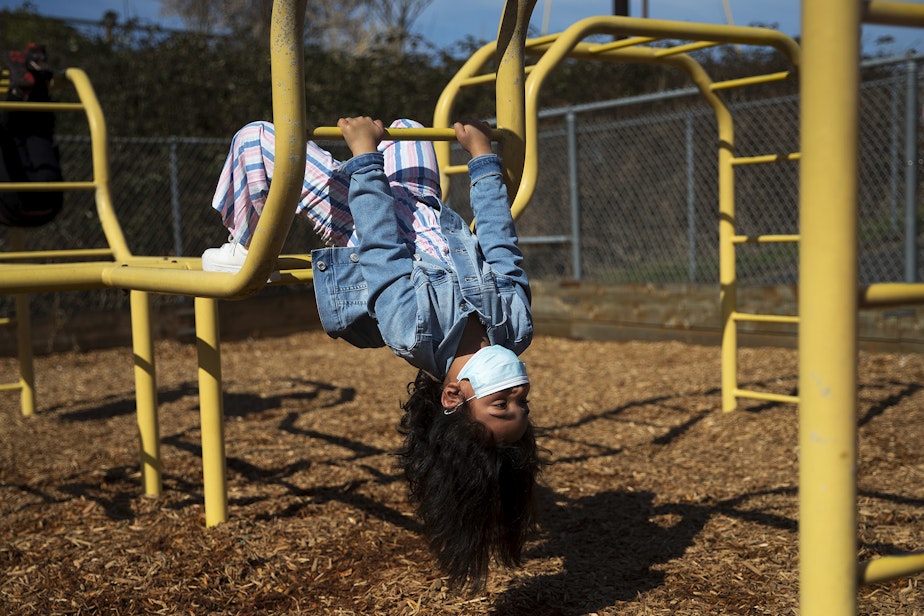Grade schoolers would get 45 minutes of recess under bill in Olympia

Recess would be mandatory at public schools in Washington under a bill before the state Legislature. Senate Bill 5457 would require that elementary students receive at least 45 minutes of play time per day, far more than many elementary students currently receive.
“This legislation is simply saying, 'Look at the data, look at the research, and do what’s right for students,'" said Sen. T’wina Nobles (D-Fircrest), who is co-sponsoring the bill with Sen. Claire Wilson (D-Auburn) to address the pediatric mental health crisis in the wake of the worst of the pandemic. “It’s focusing on the overwhelming research that tells us what our students need: to move around, to get the wiggles out, to communicate with each other, to be outdoors, to process and move through conflict.”
There is no statewide tracking of the amount of time schools offer for recess —such decisions are typically made on a school-by-school basis. But in a King County Play Equity Coalition survey of 580 elementary and middle school parents in 16 counties last year, 35% of elementary school parents reported that their children received 30 minutes of daily recess or less. Amounts ranged from fewer than 10 minutes of recess than more than 50 minutes per day.
KUOW investigations over the years found a similar variety of recess times in Seattle Public Schools, with students of color and low-income students receiving far less recess, on average, than students at predominantly white, well-off schools. In 2015, the district agreed to union demands and instituted a 30-minute recess minimum at elementary schools.
The bill now before the Senate Early Learning & K-12 Education Committee would also bar schools from using physical activity as punishment, and indicates that schools should not withhold recess from students, a common disciplinary measure.
Sen. Jamie Pedersen (D-Seattle) said that while he agrees that recess should not be withheld, he finds the bill too prescriptive overall, including its focus on recess being outdoors as much as possible.
Sponsored
“There are some students for whom recess is not a joy, and I’m thinking particularly of LGBTQ kids and other kids who are subjected to bullying and harassment in recess spaces,” Pedersen said. “I’m hearing from elementary school teachers in my district that for some kids, the best place for them might be the library.”
Pedersen said he is also concerned that the bill does not specify how recess must be staffed, and said he would prefer a model recess policy rather than a legal mandate for public schools statewide.




